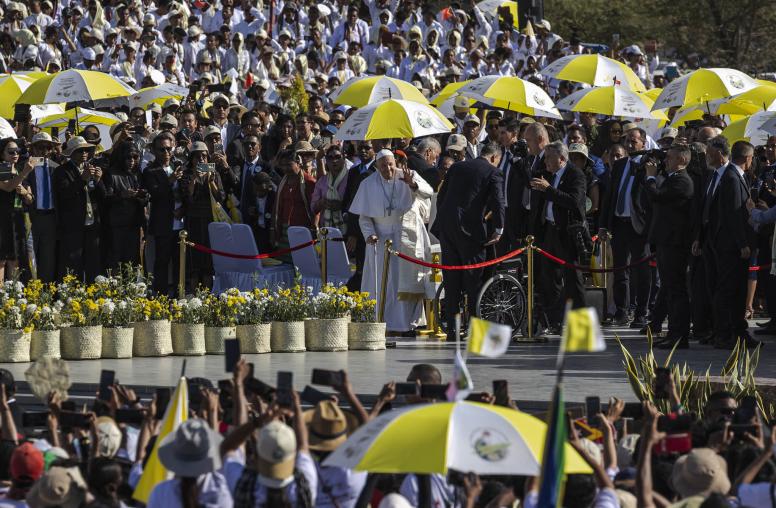Violence in Indonesia
USIP’s Army Fellow John Maraia discusses recent terror plots in Indonesia.
May 3, 2011
USIP’s Army Fellow John Maraia discusses recent terror plots in Indonesia.
- Indonesia has recently been put on high alert after police foiled terror plans to detonate bombs near a church. In the context of Indonesia's recent past, what does this suggest about who the would-be terrorists might be, and their motives?
- Because the police prevented the bombing, what does this suggest about their capability? Is it getting better?
- Does the U.S. support Indonesia in its long running battle against extremists? How could the U.S. and international community better support Indonesia as it fights extremism and terrorism?
Indonesia has recently been put on high alert after police foiled terror plans to detonate bombs near a church. In the context of Indonesia's recent past, what does this suggest about who the would-be terrorists might be, and their motives?
My understanding of the plot suggests that it was the work of Jemaah Islamiyah or one of its offshoots (possibly Jemaah Ansharut Tauhid).
I base this on the reported size of the weapons involved and the targeting. According to news reports, five devices were uncovered, totaling 140 KG (about 308 lbs). While I am not a demolitions expert, that is a sizable amount of explosives. Targeting a church during the high Christian Holy Days of Good Friday and Easter suggests a degree of audacity that is one of Jemaah Islamiyah's hallmarks. Jemaah Islamiyah has a history of striking churches on Christian Holidays. On Christmas Eve 2000, Jemaah Islamiyah operatives delivered bombs to 38 churches or Christian clergy across the country. The bombers targeted five cities on Java; four on Sumatra; and one each on Batam (near Singapore) and Lombok (east of Bali). The bombs, detonated nearly simultaneously across the country, killing 19 people and wounded 120 others.
Because the police prevented the bombing, what does this suggest about their capability? Is it getting better?
The performance of POLRI (Police of the Republic of Indonesia) in its counter-terrorism mission has been consistently improving. Since 2002, Indonesia has captured or killed over 500 militants. This can be attributed to the performance of Detachment 88, POLRIs counter-terrorism force, as well as improved investigative and forensic capabilities. According to news reports, police authorities were able to thwart this particular attack thanks to information gathered during the questioning of recently captured suspected terrorists.
Does the U.S. support Indonesia in its long running battle against extremists? How could the U.S. and international community better support Indonesia as it fights extremism and terrorism?
The U.S. has been assisting Indonesia's fight against extremists through a quiet and indirect whole of government approach. The U.S., as well as Australia, have worked with the Indonesian's to develop and improve the law enforcement capabilities that I just mentioned.
However, U.S. assistance hasn't been limited to the law enforcement/security dimension of counter-terrorism. The U.S. has also partnered with Indonesia on educational and development initiatives as well. Hard-core extremists, like the people who plant bombs outside of churches, aren't going to be dissuaded by "good works." They are committed to achieving their goals through violence.
However, extremists are surrounded and assisted, either actively or passively, by people who don't share their zeal and level of commitment but who lack faith in their government and it's ability to provide for their needs. The US and Indonesian governments have collaborated to address those legitimate needs and also peel away the less committed in order to expose the more hard core elements. The U.S. government has committed over $167 million to improve secondary education in Indonesia and has recently entered an agreement with Australia to rebuild over 40 schools in Sumatra that were destroyed by earthquakes. Other efforts have focused on civil society partnerships and health programs as well as conflict mitigation & reconciliation and job creation in areas such as in Sulawesi and Aceh that have seen considerable extremist violence in the past decade.



